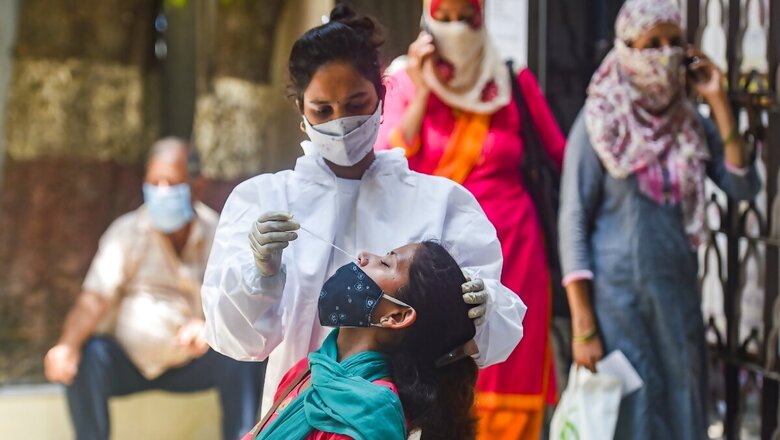
views
What explains the shortage in most hospitals during India’s second Covid-19 wave? There has been a higher requirement of oxygen observed among hospitalised patients as more people came in reporting breathlessness.
However, according to a report by The Times of India, contrary to initial observations, the age profile of people getting infected with Covid-19 in the second wave remains mostly unchanged.
The Centre’s Integrated Disease Surveillance Programme (IDSP), quoted by TOI, said around 32 per cent of patients were aged less than 30 in the second wave, as against 31 per cent during the first wave. Among people aged 30-40, the incidence of infection remains unchanged at 21 per cent, the TOI report said.
In the case of hospitalised patients, younger people (0-39 years) are slightly more vulnerable in the second wave as compared to the first despite the opening up of economic activities and general movement. Around 5.8 per cent of patients hospitalised are 0-19 years, compared to 4.2 per cent in the first wave. Similarly, hospitalised cases in the 20-39 bracket increased to 25.5 per cent from 23.7 per cent earlier.
The data also shows a higher proportion of asymptomatic patients got admitted in hospitals in the second wave with more complaints of breathlessness. The percentage of deaths in hospitalised patients remains unchanged during the interim analysis of the second wave conducted on 1,885 people during March-April. The analysis of the first wave was done on 7,600 people during September-November 2020.
A total of 41.1 per cent of patients during the first wave required oxygen, with the share rising to 54.5 per cent in the second, the demographic study based on data collected from 40 centres across the country shows. It also found that 37.3 per cent hospitalised patients required mechanical ventilation during the second wave, whereas the number was 27.8 per cent in the first wave.
Read all the Latest News, Breaking News and Coronavirus News here. Follow us on Facebook, Twitter and Telegram.




















Comments
0 comment